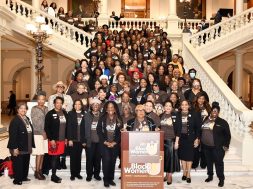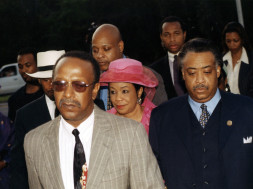
Court Reform Measures will Detrimentally Impact Minority and Women Judicial Candidates

In the years following passage of the Voting Rights Act in 1965, Florida’s judiciary was predominantly comprised of white males who ascended to the bench during the Jim Crow era when minority and women lawyers lacked the connections to become elected or gain appointment as judges. In 1974, Florida switched from elections to merit selection for appellate level judges, including the Supreme Court. During the 25 years following this change, a number of talented minority and women jurists were appointed to the state’s highest court by Democrat and Republican governors alike. Among these pioneers include African-American Justices Joseph Hatchett and Leander Shaw, who were appointed to the Supreme Court by former Governors Reuben Askew and Bob Graham, respectively. Notable women justices include former Chief Justice Rosemary Barkett, also a Graham appointee; Justice Barbara Pariente, appointed by then Governor Lawton Chiles in 1997, and Justice Peggy Quince, who was a joint appointment of Chiles and incoming Governor Jeb Bush in 1998. Former Justice Raoul Cantero was appointed to the court by Bush in 2002. In 2009, Jorge Labarga and James E.C. Perry, the former, Latino, and the latter, African-American, were appointed by former Governor Charlie Crist.
One must ask, however, whether Justices Labarga and Perry would have been confirmed by a Republican dominated Senate that increasingly was at odds with Crist during the last year of his term?
Assuming this proposed constitutional amendment becomes law, my concern is that well qualified minority and women judicial candidates who are neither card carrying Republicans nor Tea Party adherents may fail to ascend as far as their legal talents would allow. Regrettably, other than the current Florida Supreme Court where two sitting members are African-American, one is Latino and two are women—most of the lower courts still lack diversity. Underscoring this point is the Second Judicial Circuit which includes Leon County, where despite having an African-American population of approximately 30%, no African-Americans sit as circuit judges and only three women, two recently appointed by Governor Crist, currently preside.
The need for diversity is obvious and is not based on any arcane notions of quotas, rather, it is the logical progression of a society and profession that has seen thousands of talented minority and women lawyers enter the fold over the past few decades. As such, it is only logical that the bench represents these demographic trends. A 2009 Miami Herald Editorial lauding Governor Crist’s diversity goals perhaps said it best, averring “If Florida’s judiciary is to be representative of the state’s population; the (nominating) commissions must share this goal. If they don’t, the governor should find others who do.”
Clearly, this proposed amendment does little to assuage concerns of minority and women lawyers who fear that their inability to rise within the judiciary results from their skin color or gender—not their talents.
Few diversity proponents would argue against judicial candidates ascending the ranks based on merit. The concern is that ideological litmus tests will not only infringe upon the impartiality of the judiciary, but also limit the ability of minority and some women lawyers from proving that they, too, can be fair and impartial jurists. To that end, the critical issue is not just defeating efforts to reconstruct a system that is not broken, but advocating the further enhancement of a system in which those with the skills to judge the best qualified candidates have a greater role in assisting our governor in determining the same regardless of race or ideology.
Chuck Hobbs is a trial lawyer and freelance writer who placed first in the 2010 Florida Bar Media Awards. From 2007-2010, while serving as legal adviser to the Florida NAACP, Hobbs assisted Governor Charlie Crist in vetting judicial candidates. Reach him at chuck_hobbs@yahoo.com








